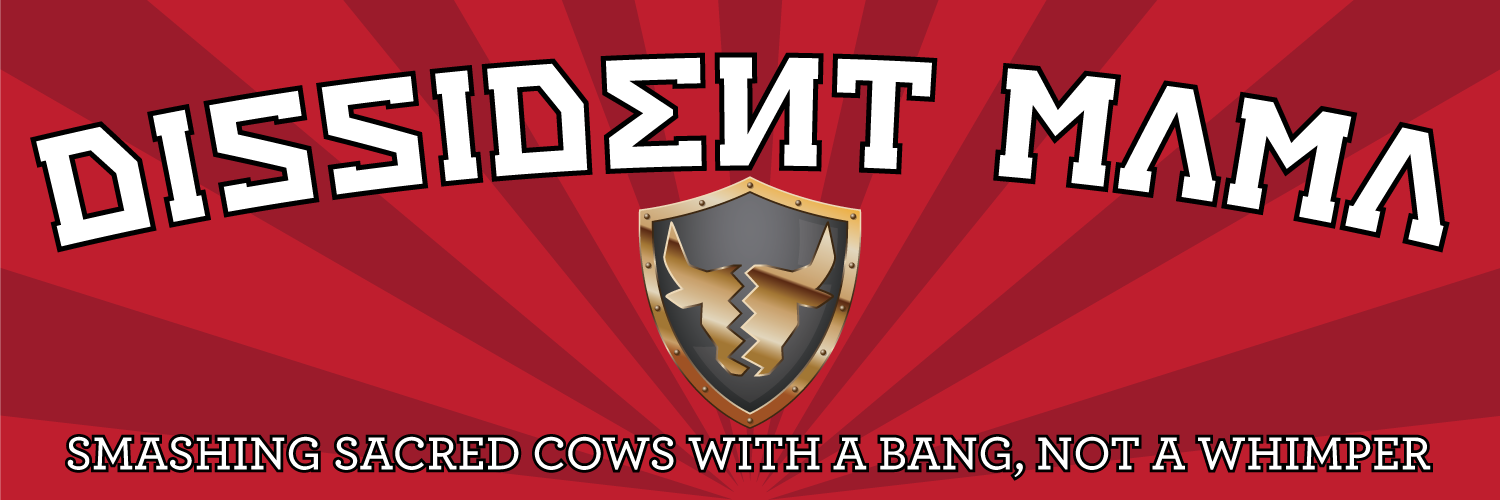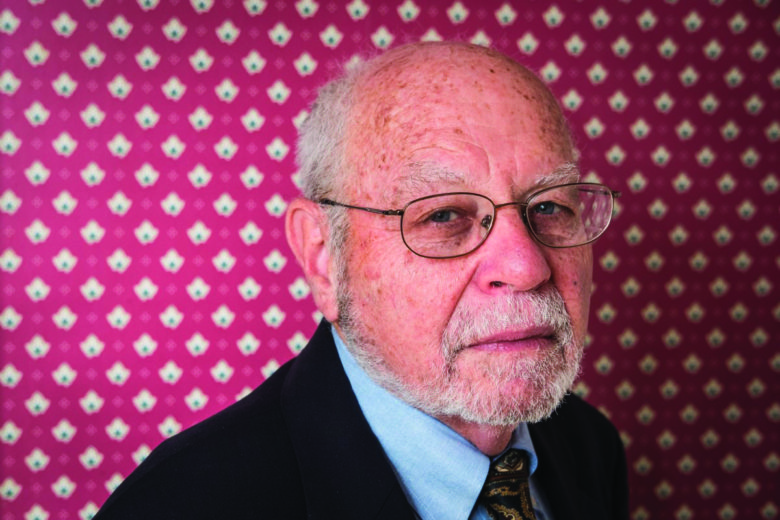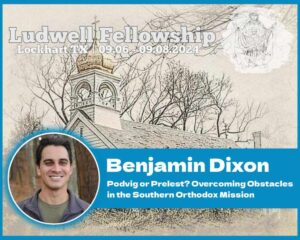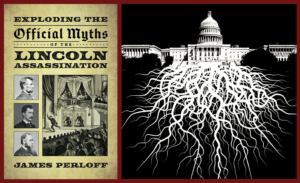In this episode, I chat with Dr. Paul Gottfried, editor-in-chief of Chronicles Magazine and president of the H.L. Mencken Club. He is a Raffensperger Professor of Humanities Emeritus at Elizabethtown College, where he taught for 25 years, a Guggenheim recipient, and a Yale Ph.D.
Gottfried’s the author of 15 books, including “Fascism: The Career of a Concept,” “After Liberalism: Mass Democracy in the Managerial State,” “Revisions and Dissents: Essays,” and one of the most influential books on me personally “Multiculturalism and the Politics of Guilt: Toward a Secular Theocracy.” Gottfried’s editor of the brand-new anthology “The Vanishing Tradition: Perspectives on American Conservatism,” featuring chapters by some of today’s boldest and most provocative thinkers. You can also find Gottfried’s prolific writings far and wide in some of America’s most esteemed publications.
Gottfried and I discuss swindling Conservative Inc., as well as some of his ideas of how to push back against the progressive madness. The “Gott-father,” as many of his paleocon readers call him, has quite the interesting bio, such as the fact that his doctoral advisor was none other than Herbert Marcuse of the Frankfurt School. Besides having this keen vantage on cultural Marxism, Gottfried has also been opposing the neocons for decades in battles that have sometimes gotten a little personal. This “loyal opposition” ideology has abandoned us true conservatives and traditionalists and left us without leaders, without a voice, and without any real Republican recourse, at least at the federal and most state levels.
I am thrilled to have had the opportunity to talk with one of my heroes who has been fighting the good fight for a long, long time. I hope you all enjoy the interview and that it does justice to the respect I have for this truly brilliant and benevolent man.






Comments
Love the discussion. Gottfried is a great man. 10,000 confederate flags waving in the streets would be a big message. I’m on board.
Concerning the idea of creating a brand new political party. I’m not so sure it would have to be a nationwide party. I’ve thought about the need for a Texas Independence Party in order to bring about an independent Texas republic. Maybe a confederation of these types of parties all over right wing America could be powerful, while leaving regional differences (potential sources of conflict) alone. For instance, there could be a Louisiana Independence Party, Montana Independence Party, Alabama Independence Party, etc. They would be separate entities but would be inclined to work together towards mutually reinforcing goals.
Also naming the party the Radical Decentralist Party would be a very ill-advised idea. Conservatives don’t think of themselves as radicals, even if that’s what we are now in Leftist America, so your main target demographic would be turned off immediately. You’d be left with a few libertarian conservatives like me.
We need to appeal to a much broader coalition. Maybe Reactionary Party, States Rights Party, or like Clyde Wilson suggested, the Southern Party. Perhaps even Constitutional Party. Again though, I like the idea of a coalition of state based independence parties.
Also I’m not a huge fan of the term “decentralist” and here is why. Although a position away from center is undoubtedly the direction we need to move in regards to political authority to re-establish good governance, I don’t think a center-less society is the end goal (or is even possible). I am not against centers of authority or government; these things are natural and necessary to civilized life. What I am against is the state: the monopolization of government and authority. I am against the one ring.
My ideal would be a many centered or polycentric society with coterminous and overlapping jurisdictions of political societies and private law associations based on individual or family consent. The European Middle Ages had this to a large degree and lo and behold, the ideas of liberty were firmly established in the hearts and minds of Europeans of all sorts. Somewhere along the way, this dynamic was superseded by proponents of monopoly, and the state was re-established or born for the first time around the end of the Thirty Years War with the Peace of Westphalia. Actually it is no mystery what caused this to happen. It was each and every time war that created the necessity (in the minds of the people) of the state. But I’m getting off topic.
The Reactionary Polycentric Party just doesn’t have a very catchy ring to it. It sounds like a party doomed from the beginning to include only a few esoteric nerds and scholars. But I think now is not the time for a purity test. It is the time for coalition building, but we do need to start something new, so we can divorce ourselves from the Party of Lincoln.
I would sign on to the Southern Party of Christendom. But here again, the Christendom part will alienate useful allies from us. It is most important to separate politically first (from California, New York, and DC), then worry about the political battles within each state towards the kind of society we want to live in.
Agreed that authority is a necessity within a successful society, and I think that would be the result of the best decentralized states as long as they were small. But yes, those authorities would have to be figured out after the collapse of the centralist state. And if people voluntarily were able to build and partake in those entities, I think each one’s chosen authority would happen naturally, not artificially as is the case in Murica today. Yes, too, that separation from the beast is the biggest concern now, and I concur that purity tests if too pure would get in the way of advancing forward. However, I would say that too “big tent” would lead us to the problems we have today. We would have to a strong platform and be unapologetic about it, but from there, it would be unique to each locality, just like your Independence Party examples. But THE most important thing would be the coalition building of which you speak, building bridges, as I like to call it. This doesn’t mean selling out principles, but simply building alliances. This will be hard and will require people to get over being called names for associating with folks who have already been deemed “unacceptable,” but hopefully the Republicans traitorous ways will drive people into the arms of dissidents who have good, bold ideas, not the same old sell-out crap many have become accustomed to. Let’s pray that people will have open minds and hearts as we figure all this out.
Great ideas, TL. I’m going to be writing a “what to do” blog post, taking some ideas from Gottfried, Kerwick, Musonius Rufus, Wilson, a few other wise folks, and then throwing in a few of my own, which will be sure to borrow from some of your insights. Thanks, brother!
Looking forward to it.
Gottfried is one of the last great American thinkers. I love his unabashed expression of traditionalism. The seething contempt he demonstrates for the Republican party warms my heart.
Indeed. He is so unapologetic in his scorn for the real true enemy: the wolves in sheep’s clothing.
It also warms my heart to hear him speak of authoritarianism, that it is a good thing if the authority is good. This is a fairly common sentiment in dissident Christian circles, but not really talked about outside of that, especially in the loony libertarian sphere. The old paradigm of live and let live, universal suffrage, pluralism, diversity is our strength, do as you please with no rules, no social mores, no guiding moral principles, no consequences is silliness. It’s similar to what Hoppe says. You are free to be a part of the covenant and abide by its precepts, or you are free to leave. Anything in between will require physical removal.
https://uploads.disquscdn.com/images/3c422560856cd31fd6a2aa599190b9dd3e453a51f7815f0cd99eaa0d7b653106.png
Indeed. He is so unapologetic in his scorn for the real true enemy: the wolves in sheep’s clothing.
It also warms my heart to hear him speak of authoritarianism, that it is a good thing if the authority is good. This is a fairly common sentiment in dissident Christian circles, but not really talked about outside of that, especially in the loony libertarian sphere. The old paradigm of live and let live, universal suffrage, pluralism, diversity is our strength, do as you please with no rules, no social mores, no guiding moral principles, no consequences is silliness. It’s similar to what Hoppe says. You are free to be a part of the covenant and abide by its precepts, or you are free to leave. Anything in between will require physical removal.
https://uploads.disquscdn.com/images/3c422560856cd31fd6a2aa599190b9dd3e453a51f7815f0cd99eaa0d7b653106.png
As much as I hate to tell my Libertarian friends, the logical end of Libertarianism is just leftism of some sort. It is inherently Utopian and displaces culture with economics as the driving force behind society. That is the left. They simply individualize their utopian system of collectivism (boy, that will piss them off).
I think republicanism and enlightened authoritarianism can coexist with the republican order holding in check totalitarian tendencies that might arise within an authoritarian structure. That is basically the old British system that developed after Magna Charta and the Glorious Revolution.
Well said, as always, William. And what’s another name for a system that “displaces culture with economics as the driving force behind society”? Yankeeism.
The endless struggle of ordinary people on the American continent–combating Yankeeism. Someone should devise a vaccine for that. We tried.